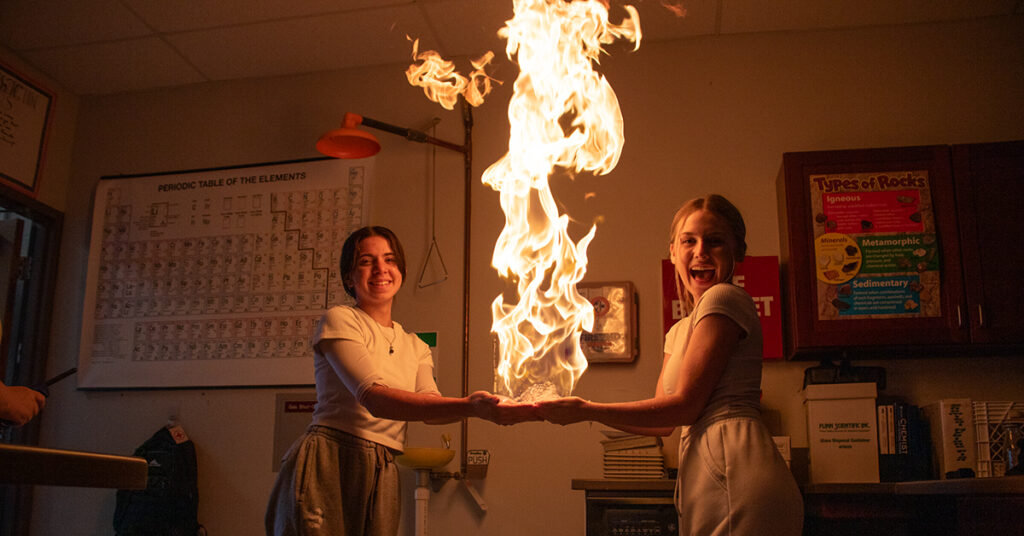On Academic Excellence
Understanding Excellence
What does academic excellence look like? Does it look like merit scholarships (we’ve had those) or academy appointments (we’ve had those, too)? Does it look like elementary students who are multiple grade levels ahead in math (yep—we’ve had those as well)? We (Jill and Eli) pour ourselves into building a school that provides an excellent academic education—and by that term, we mean growth for each student. This happens when teachers see kids—see their unique strengths and their crazy giftedness—and also see the unique obstacles related to each student’s specific learning needs. Over time in our roles as principals, we have both become data people. We love data. It provides a picture of what is real. We want to share with you some of the data we are seeing because it is truly worth celebrating the learning and growth going on at FRCS.
At Elementary
At the elementary level, we use two benchmark assessments—Acadience for reading and the iReady diagnostic for math—to identify student strengths and areas for growth which we target during our WIN (What I Need) time daily. In the spring of the ’24/’25 school year, we found that 82% of our elementary students are at or above grade level in reading, and 80% are on target or above grade level in math.
In addition, we now administer the Cognitive Ability Test (CogAT) to all students in first grade. This test is routinely used in schools to measure students’ reasoning and problem-solving skills to identify potential eligibility for gifted and talented programs and to understand individual learning strengths. We use these results to identify students who may benefit from our Explore program which is designed to challenge and enrich the standard curriculum. Each year, approximately 25% of our elementary students grades 2-6 are enrolled in the Explore program.
At Jr/Sr High
At the junior high, we are launching a new enrichment program (we’re calling it “Learning Workshop,” and it is a continuation of the Explore program that is offered at the elementary). As part of launching this new program, we dug into data about our junior high students and learned that 35% of our junior high population scored in the 90th percentile or higher in at least one content area on the Iowa exams. That means that, literally, 35% of our students grades 7-8 are in the top 10% in the nation in at least one discipline (often in multiple disciplines)! This is genuinely exceptional data, and it indicates how strong the instructional program is at both the elementary and junior high levels. It also demonstrates how badly an enrichment program is currently needed at the junior high.
In the senior high, our Advanced Placement courses have also been successful, and it’s worth celebrating the results. Today’s educational marketplace offers a variety of options for high school students who are high achieving, and while it is appealing to consider offering dual credit courses again (we used to do this, and we are currently exploring the benefits of running these classes again), it is also true that many universities are becoming more selective about whether or not they will accept dual credit courses. Conversely, Advanced Placement (AP) remains a demanding educational standard which is widely “accepted by any university” because there is a difficult assessment attached to the class. In our AP English courses (both AP Language and AP Literature), there was not a single failing score from any student! This means that every student who took the AP exam in Lit. or Lang. received college credit for it, and this type of pass rate is widely unheard of amongst AP exams. In AP Chemistry, Calculus, and History (both European and U.S. History), the pass rate at FRCS was significantly higher than the global average. This data speaks volumes about the quality of instruction happening within our AP classes, and it is worth celebrating our AP students as well as our AP teachers!
A closer look at the Iowa Assessments data also reveals that English and Language Arts at our school is an incredibly strong discipline from elementary through senior high. In almost every category for each year, FRCS students significantly outperform the nation in reading, writing, spelling, grammar, vocabulary, and in the literary analysis skills associated with this discipline. To put it the way a student might, “this department is FIRE.”
Certainly Incomplete
We often say that the effort of improvement is “possibly wrong and certainly incomplete.” The above data highlights some truly tremendous efforts that, at times, reflect the work of multiple years of improvement tackled by multiple teams of people. While these efforts are well worth celebrating, we know that we are not done yet. Our efforts to chase improvement need continued revision, continued re-evaluation, and continued resources.
At the elementary level, we know that we need to focus more on strengthening student performance in math computation and geometry. These are two of our weaker areas in mathematics according to the Iowa Assessments. In addition, we need to work on early literacy interventions to better support students who may be showing signs of struggle.
At the junior/senior high level, we are excited to pilot the junior high enrichment program this year, but we are going to be simultaneously evaluating how else we can get better at serving those students who are high achieving. This might result in developing certain honors level courses earlier in junior high, offering dual credit courses that might allow students to gain college credit earlier in their high school career, and providing increased enrichment options that take place both inside the classroom as well as outside of it.
Lastly, it would be ignorant to celebrate any of this without also celebrating the home. Parents, we know you have committed time, effort, energy, and resources into prioritizing learning for your children. When you stay on top of them about their assignments, when you sit down and do their homework alongside them, when you challenge them to not give up, when you advocate for them with the teacher, and when you insist that you believe in them even when they forget to believe in themselves—well … the impact of that is simply worth celebrating.
Thank you,
Jill Hart & Eli Spector








